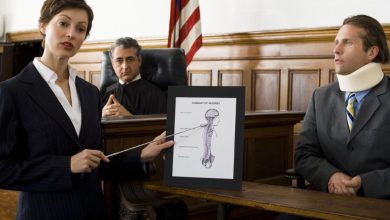personal injury attorney
How to become a personal injury lawyer?
Personal injury lawyers concentrate their practice on cases related to emotional or bodily injuries, such as those caused by a negligent physician or a drunk driver. They work to make certain that their clients’ rights are protected and that the customer receives a reasonable settlement to compensate for their injuries. Personal injury lawyers concentrate their practice on cases related to emotional or bodily injuries, such as those caused by a negligent physician or a drunk driver. They work to make certain that their clients’ rights are protected and that the customer receives a reasonable settlement to compensate for their injuries.
Although most lawyers work on a full-time foundation in a workplace setting, lots of work very long hours as they prepare for a situation and might need to travel to meet with clients or other people linked to a case. Most personal injury lawyers work for personal practices. The potential for high income is present with expertise and an affiliation with a respected practice. All lawyers make a mean yearly salary of $136,260 as of May 2015, according to the US Bureau of Labor Statistics.
Career Requirements at a Glance. Degree Level Bachelor’s degree followed by a law degree (Juris Doctor)Degree Field Varies Certification/License Bar exam Key Skills Powerful speaking, analytical, and organizational skills; knowledge of state and federal laws pertaining to personal injuryWages (2015) $136,260 (mean annual salary for many lawyers)*Step one to becoming a personal injury lawyer involves earning an undergraduate degree. To attend law school, students should have a bachelor’s degree. Even though most schools will take undergraduate research from any area, common majors for potential lawyers include political science, social science, history, and English. Some colleges offer programs specifically in pre-law.
It’s also advised that aspiring lawyers take part in mock trials hosted by a college or lawyer’s office. Mock trials provide pupils the chance to spend some time working alongside licensed lawyers and find out about how court proceedings work.
Towards the end of a bachelor’s program, students must take the Law School Admission Test, or LSAT, a multiple-choice exam that measures a student’s aptitude for the skills normally used by lawyers, such as critical reading, study, job management, and logic. Admission to law school is normally aggressive and frequently depends upon a student’s grade point average, in addition to their LSAT score.
The next step to becoming a personal injury lawyer is made up of earning a law degree. The first year covers general legal topics , such as constitutional law, property, torts, contracts, criminal law, and legal writing. The second and third years are dedicated to elective courses, which may include classes related to personal injury, such as complex tort law, medical malpractice law, and civil litigation. It’s important to remember that in order to gain admittance to the bar, most states require lawyers to make their law degree from an institution approved by the American Bar Association.
Participating in an internship can also be significant. Interning with a personal injury company or a judge who presides over personal injury trials may teach pupils about trial practices widely utilized in this field. An internship may be required by some colleges.
The next step to becoming a personal injury lawyer is to take and pass the bar exam. So as to practice law in most states, aspiring lawyers will need to pass the bar exam (successful passing constitutes licensure and is known as’being admitted to the bar’). There’s no particular bar exam for personal injury lawyers; the examination is the same for all types. The content and format of the test varies from state to state. Typically, applicants are tested on state-specific and federal laws. The bar exam must be taken from the condition a personal injury lawyer intends to practice.
The fourth step to becoming a personal injury lawyer is to take and pass the Multistate Professional Responsibility Examination (MPRE), which is required by many nations. This multiple-choice exam is supposed to quantify a lawyer’s understanding of professional conduct. The test isn’t supposed to ascertain the individual lawyer’s integrity but rather to measure their comprehension of the laws that govern professional behaviour and how they apply to lawyers in cases like contempt, censure, or even criminal wrongdoings while at work.
Continuing education is required in most states for a personal injury lawyer to keep bar status. A personal injury lawyer can continue their education through the middle of Professional Development offered by the ABA. Law schools may also provide continuing education classes. Furthermore, continuing education can help a lawyer stay current with changes in laws and improvements in the field.
A personal injury lawyer can take several routes for career advancement, but all need gaining several years of court, and practical experience. Junior lawyers working in law firms can become a spouse , which is an ownership position within the company. Additionally, experience provides some lawyers the contacts and skills to start their own law firms. Experienced lawyers can become judges or law professors.
Prospective personal injury lawyers should attempt to earn a bachelor’s degree and a law degree; pass and take the LSAT, bar exam, and MPRE; complete continuing education; and be certain to gain loads of experience.

